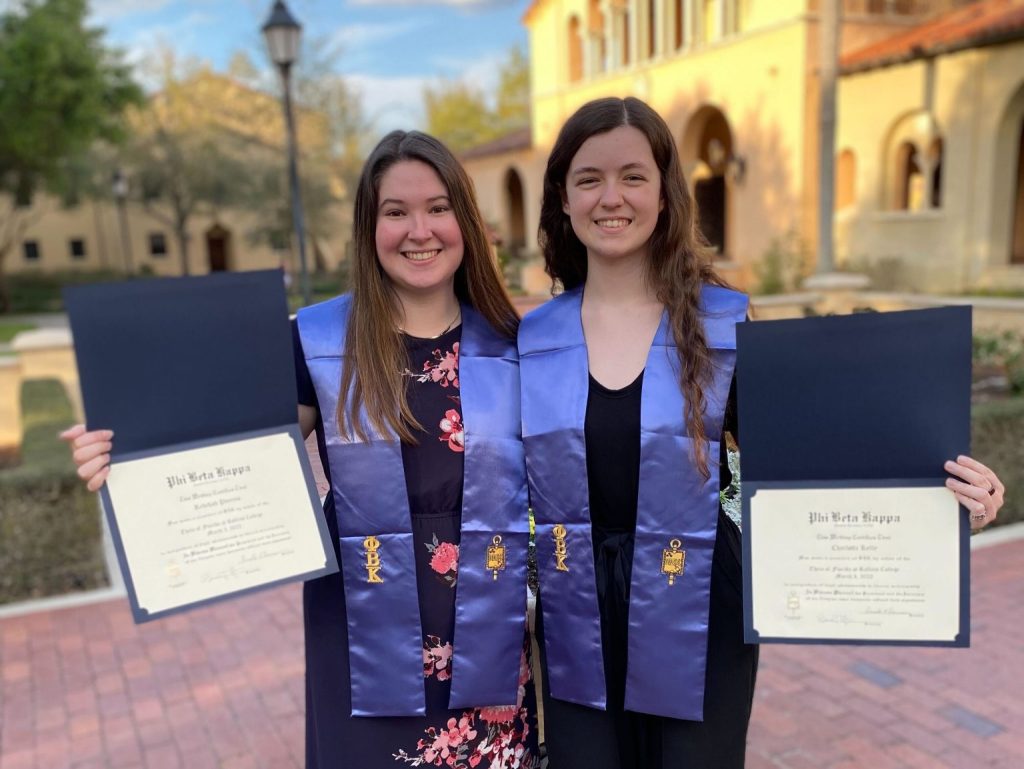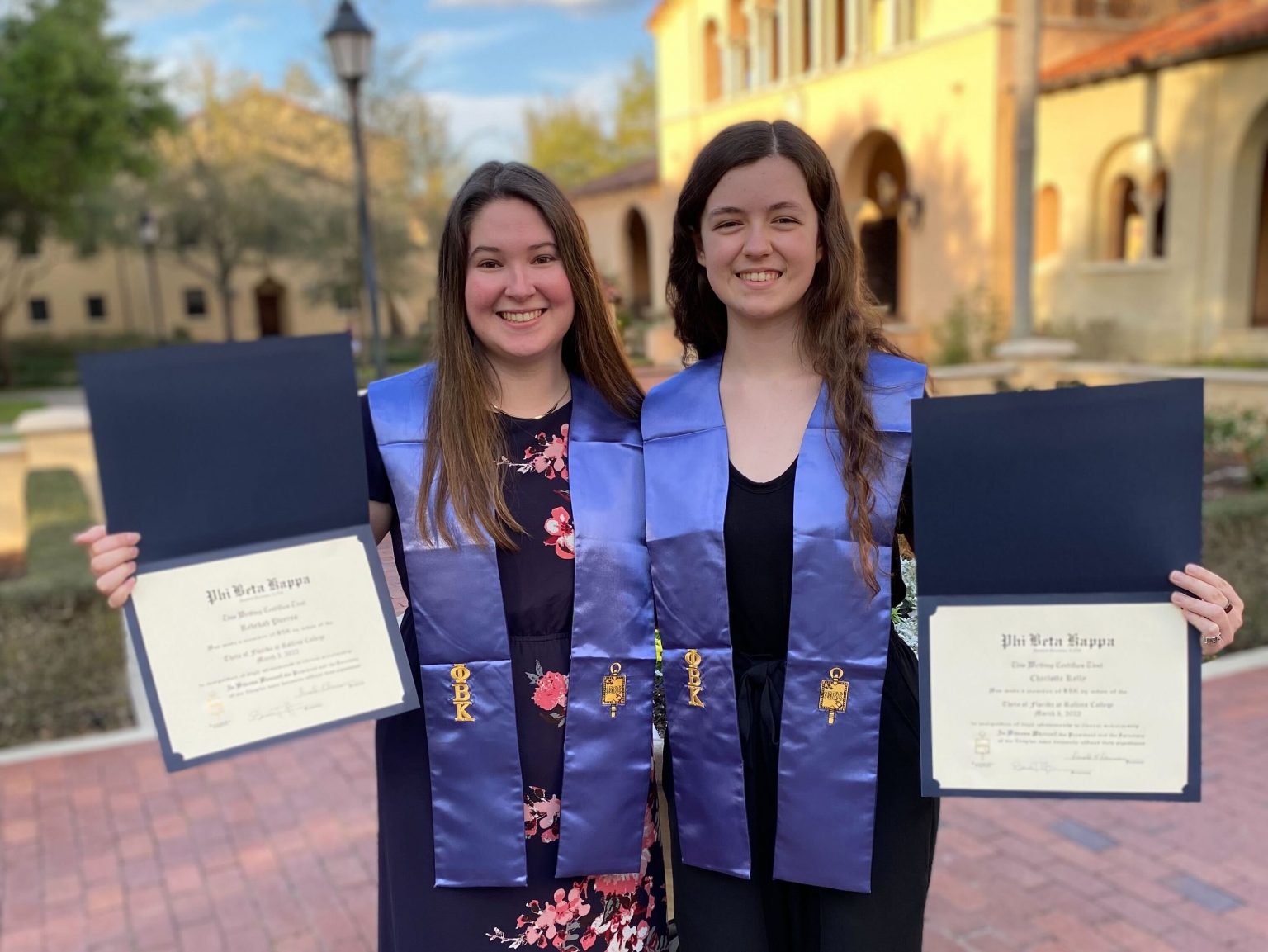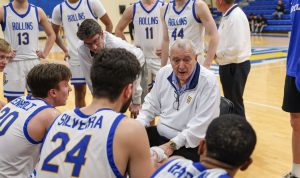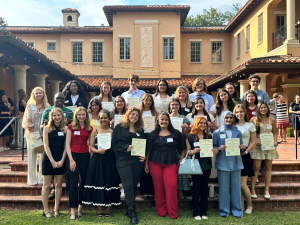
This past March, Rollins welcomed 19 students into the inaugural class of the Theta Chapter of Phi Beta Kappa. Despite the excitement surrounding this historic moment, some students have been met with confusion and apprehension about the college-level induction process.
Phi Beta Kappa is a prestigious honors society that celebrates academic excellence in the liberal arts and sciences. The organization’s CEO Frederick Lawrence stated that Rollins was selected for membership because the college “actively and purposefully integrates the liberal arts” throughout its curriculum—a quality at the core of Phi Beta Kappa’s mission statement.
According to the honor society’s national membership requirements, prospective inductees must have completed 90 credit hours of college coursework that “unambiguously embodies” a rigorous and diverse education.
Academic performance in these classes must also be exceptional, typically meaning a 3.7+ GPA. As such, the students accepted are usually seniors in the top 10% of their graduating class, although some high-achieving juniors may also make the cut.
Unlike other honor societies which accept applications for membership, Phi Beta Kappa candidates are selected on an invite-only basis. In addition to achieving the organization’s baseline requirements, the Theta Chapter’s school-specific guidelines state that students must meet the following “rigorous” criteria.
At the minimum, interested scholars must be in consistent good standing with the Academic Honor Council and have pursued broad types of coursework across multiple discipline areas.
At least three quarters of one’s total classes must be liberal arts based rather than career or internship focused, usually meaning that a student has pursued a liberal arts major. That includes disciplines like the Social and Natural Sciences, Humanities, Fine Arts, Mathematics, or Global Languages. For non-liberal arts majors, the three quarters rule still applies.
Within their major, students must demonstrate a developed, persistent history of high-level achievement throughout all their years of schooling. For instance, this may be demonstrated through placement on the President’s or Dean’s list, membership in other academic honors societies, or acceptance of any awards and honors.
In addition to their core courses, inductees must also demonstrate a marked interest in subjects outside their declared major through pursuit of variable electives or a minor. Evidence of intellectual curiosity may also take the form of an independent study, an honors thesis, or a prolonged creative project.
Beyond academics, participation in character-building activities like volunteering and community outreach, as well as meaningful involvement or leadership in extracurriculars, is also indicative of a holistic college experience. Altogether, the Theta Chapter hopes to admit a “prestigious community of scholars, artists, and leaders” with unmatched educational and personal reputations.
Only Phi Beta Kappa members are allowed to send invitations, but all students who meet the initial requirements are eligible regardless of whether their department has a foundational member. Near the beginning of the Spring term, the panel of faculty reviews transcripts and makes decisions based on the aforementioned guidelines. Once selected, students receive an invitation to apply and are inducted into the group later in the semester.
Anyone with additional questions about Phi Beta Kappa can reach out to a foundational faculty member or the Theta Chapter Officers: Don Davison, Mackenzie Moon Ryan, Benjamin Hudson, and Martha Cheng. Memberships are awarded each Spring.







Comments are closed.